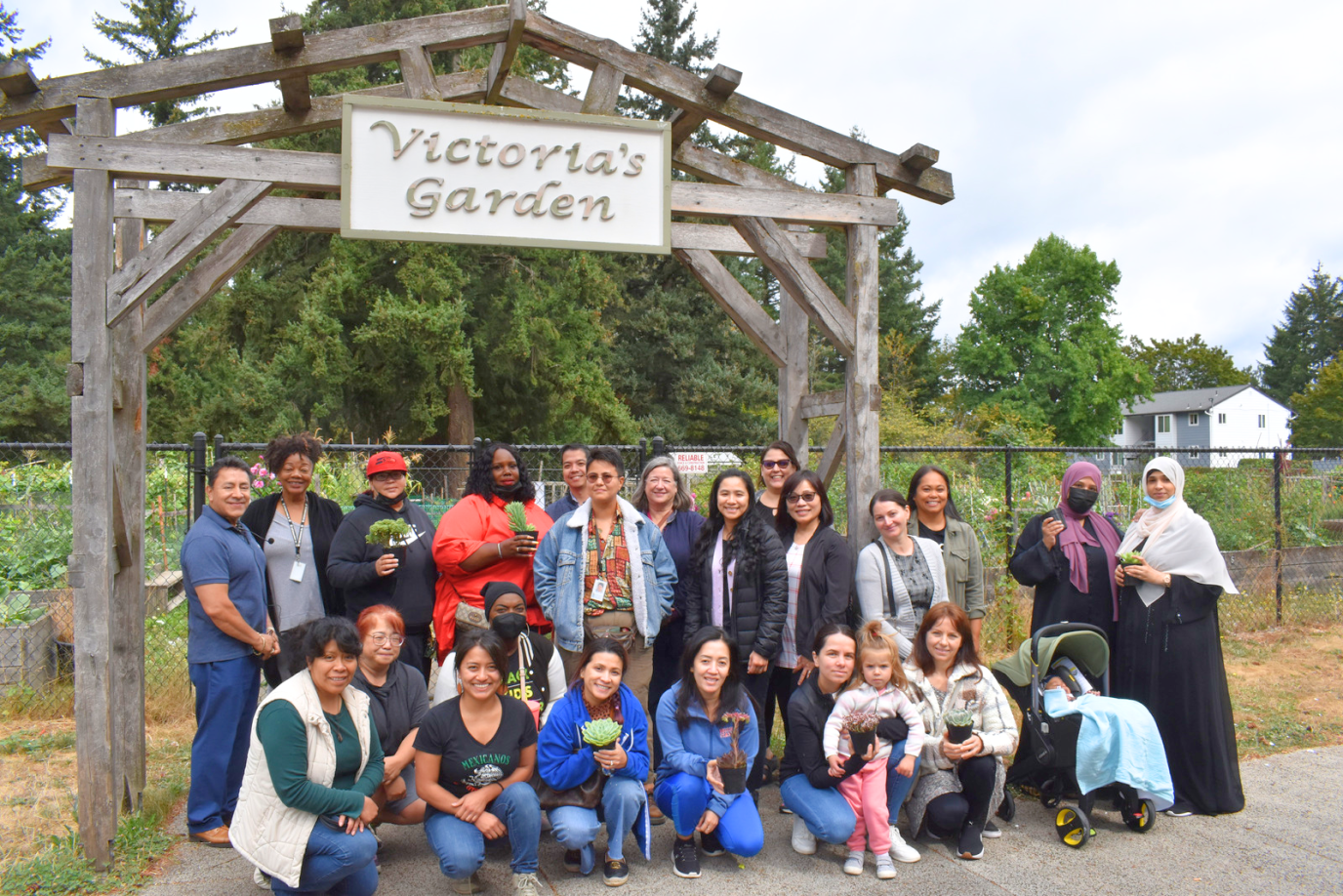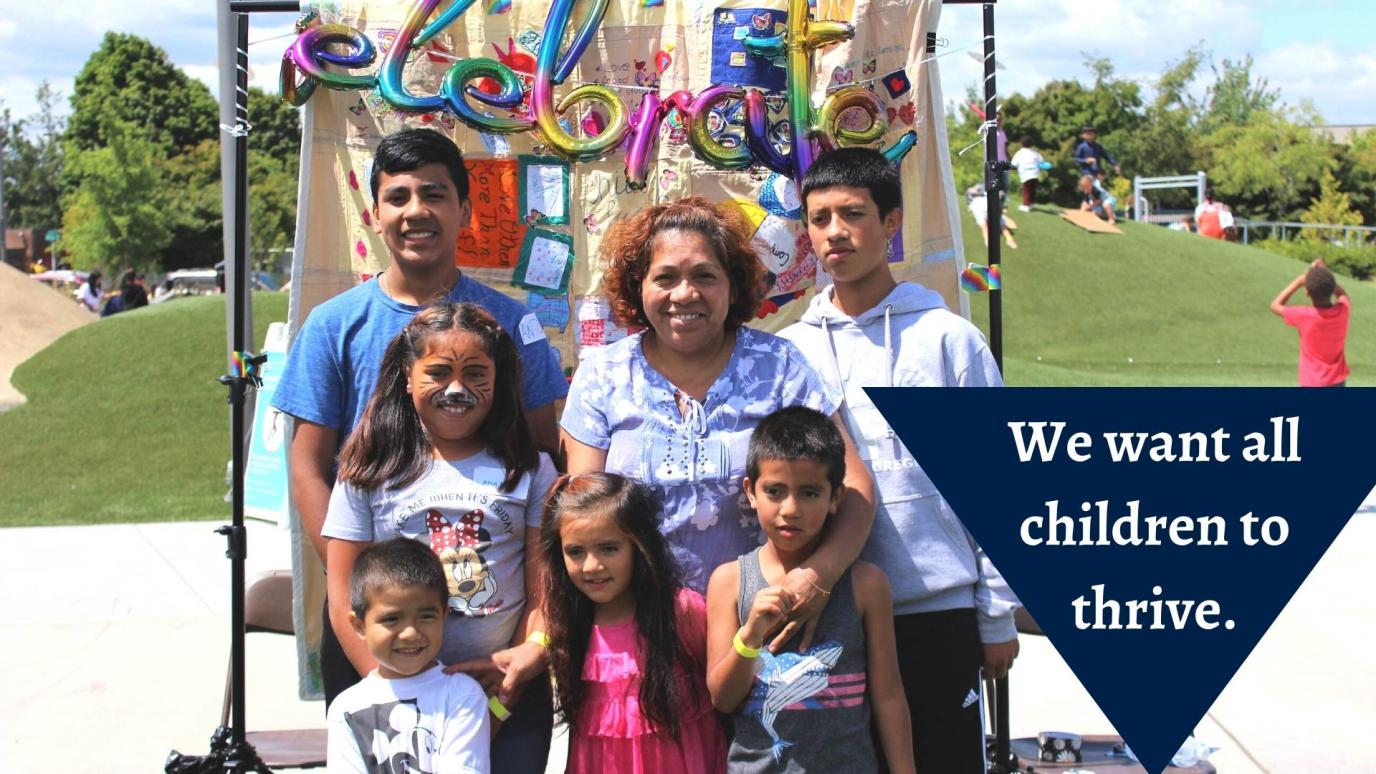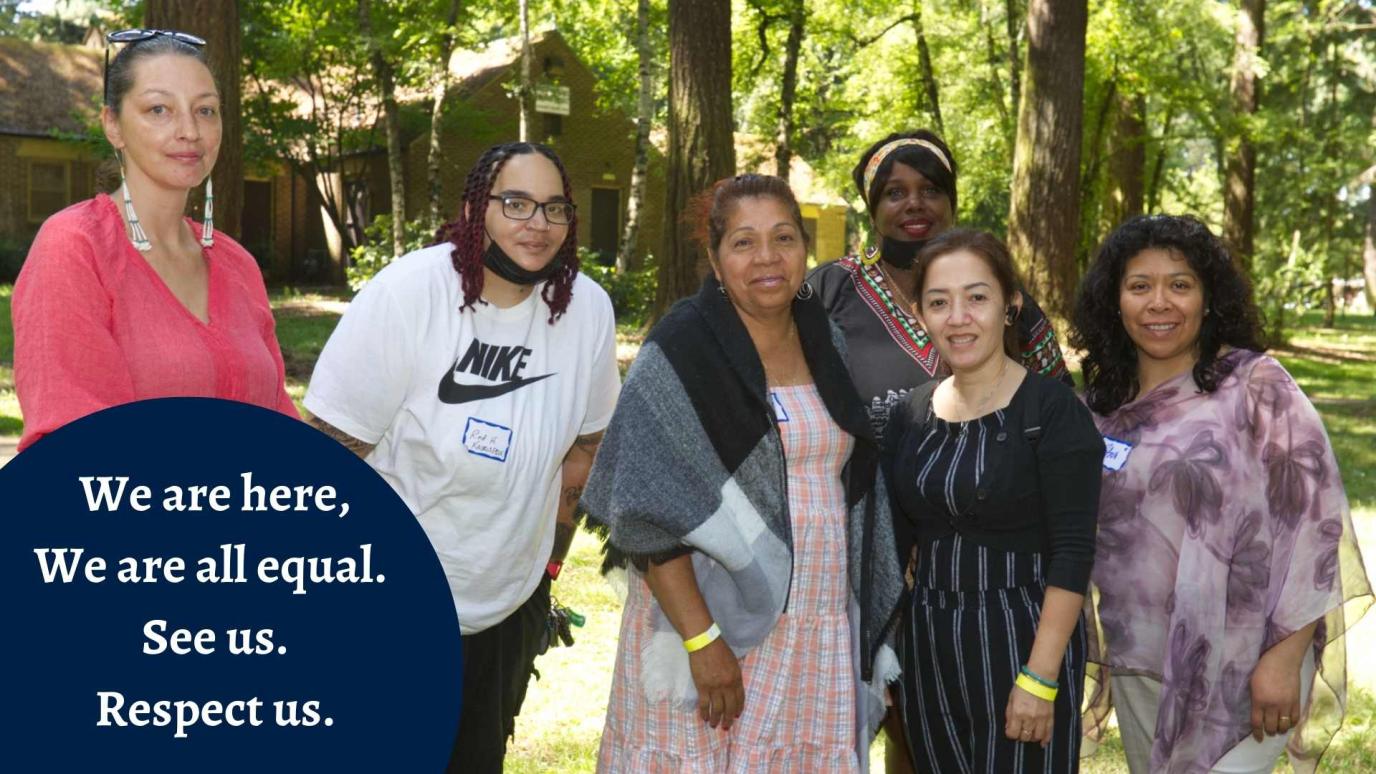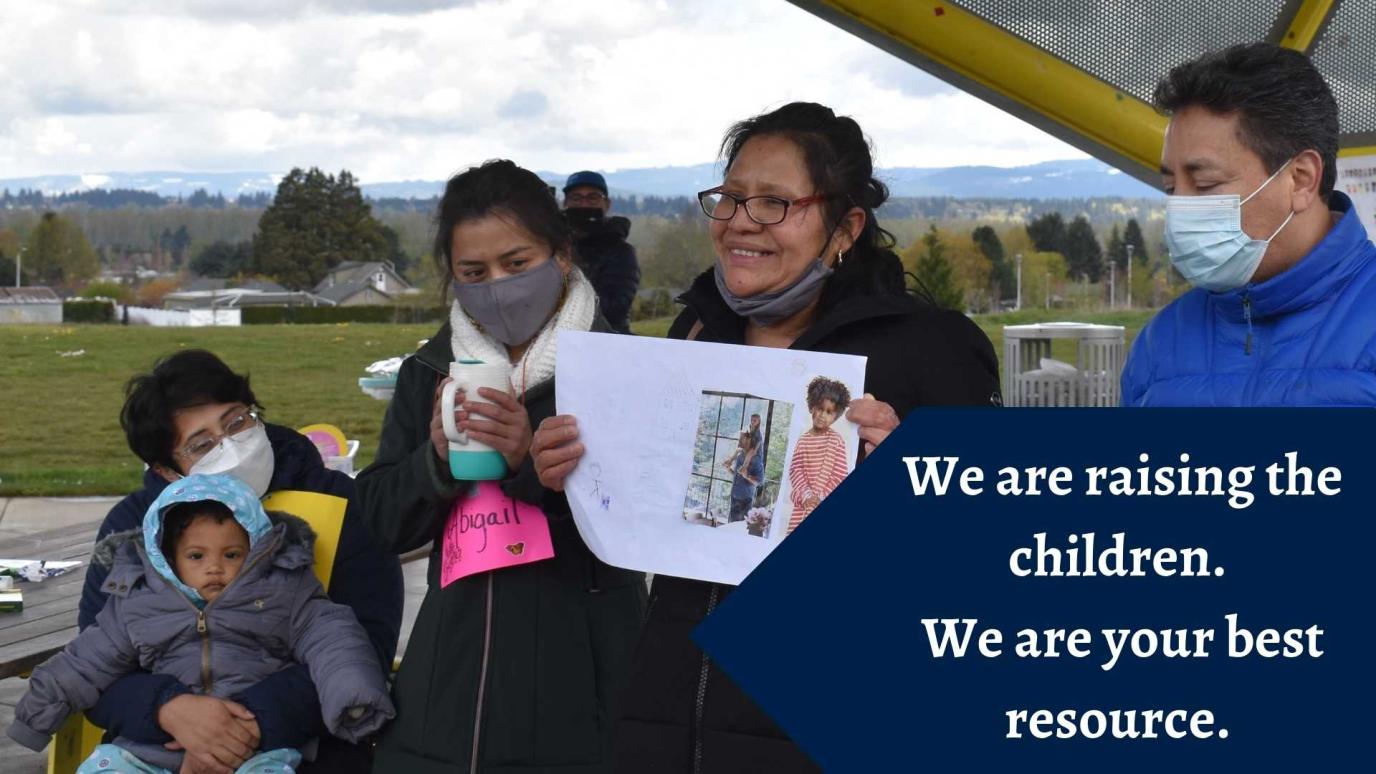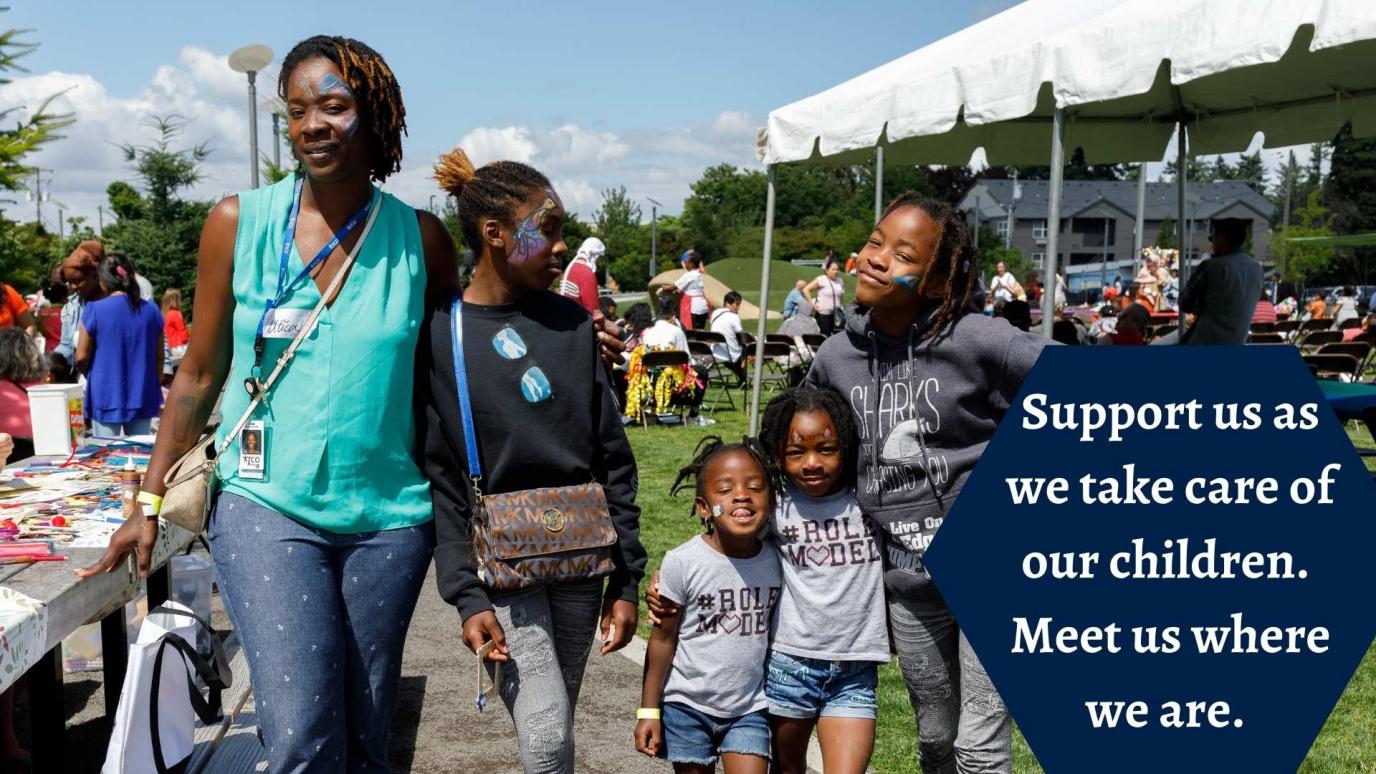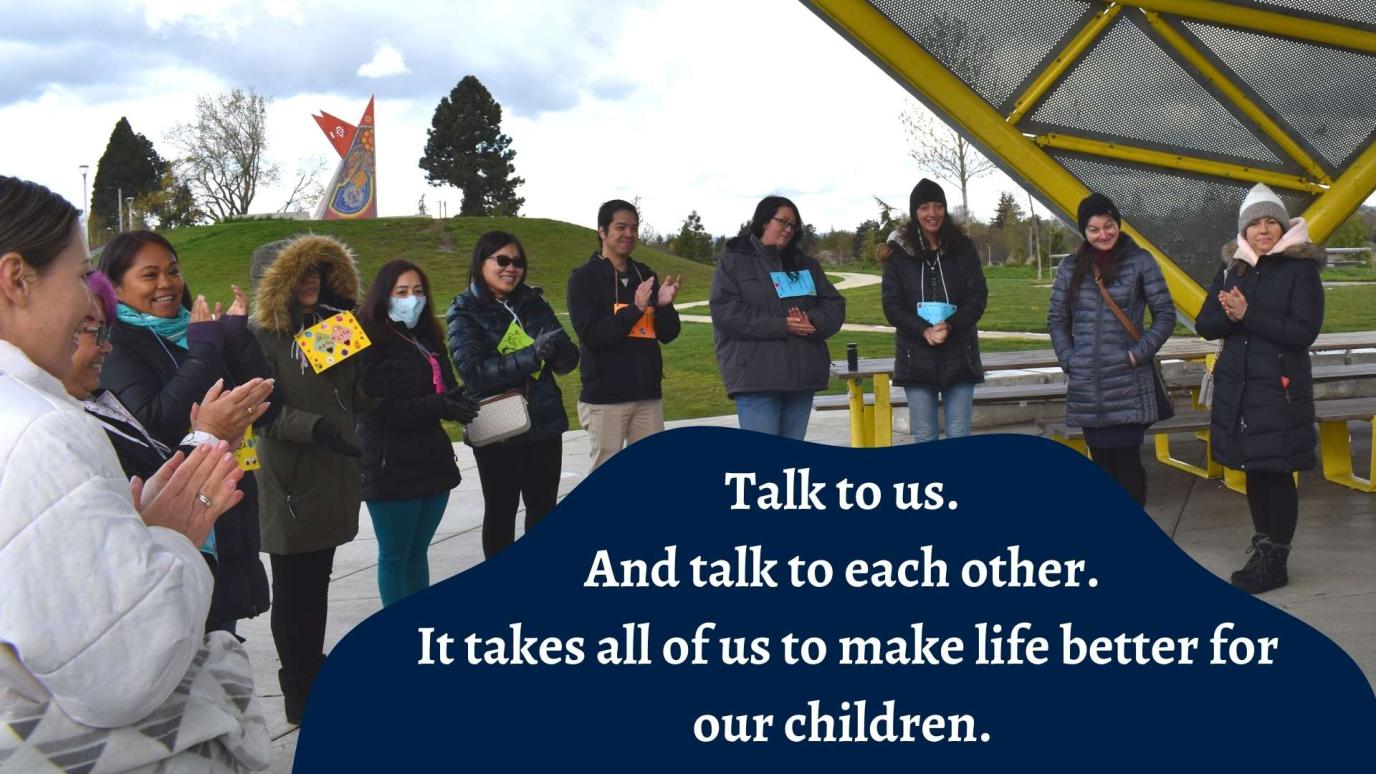ELM relies on the regular guidance and expertise of two decision-making groups.
Parent Accountability Council
The Parent Accountability Council (PAC) ensures that family voice guides ELM's work. Parents from African American, African immigrant, Asian, Latino, Native American and Slavic communities form the council. In addition to the monthly* PAC meetings, partner organizations convene quarterly culturally-specific Parent Leadership Team meetings for broader parent input.
Guiding Principles
The PAC's Guiding Principles are central to ELM's approach (also available in Chinese, Russian and Spanish).
When Early Learning Multnomah began, we needed a way for the Parent Accountability Council to guide us in all the many decisions we as staff had to make—from who we partnered with and what we prioritized, to where we made financial investments. So, PAC members and ELM staff created the Guiding Principles during months of conversation and debate, as a touchstone for staff in decision-making and a way for the PAC to hold staff and partners accountable. It’s been eight years and the Guiding Principles still drive the work of ELM and keep us attentive to the heart of the richly diverse parent community which is our PAC.
ELM works with these organizations to provide support and staffing for parents on the PAC:
- Latino Network
- Native American Youth and Family Services (NAYA)
- Self Enhancement Inc. (SEI)
- Immigrant Refugee and Community Organization (IRCO)
- KairosPDX
*Council meetings are open to the public with prior notice. Please contact Jorge Guzman Arenas or Michelle Nelson for more information.
Featured PAC members
PAC spotlight: Tam Huynh
Tam Huynh is an active parent leader and is well respected within the Vietnamese community in Portland. When her son was in Kindergarten at Lincoln Park Elementary, she met a P-3 Coordinator who helped Tam get involved parent leadership activities. She started serving on the Parent Accountability Council in 2017 because she cares about education and wants to help her community.

